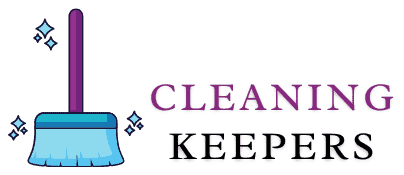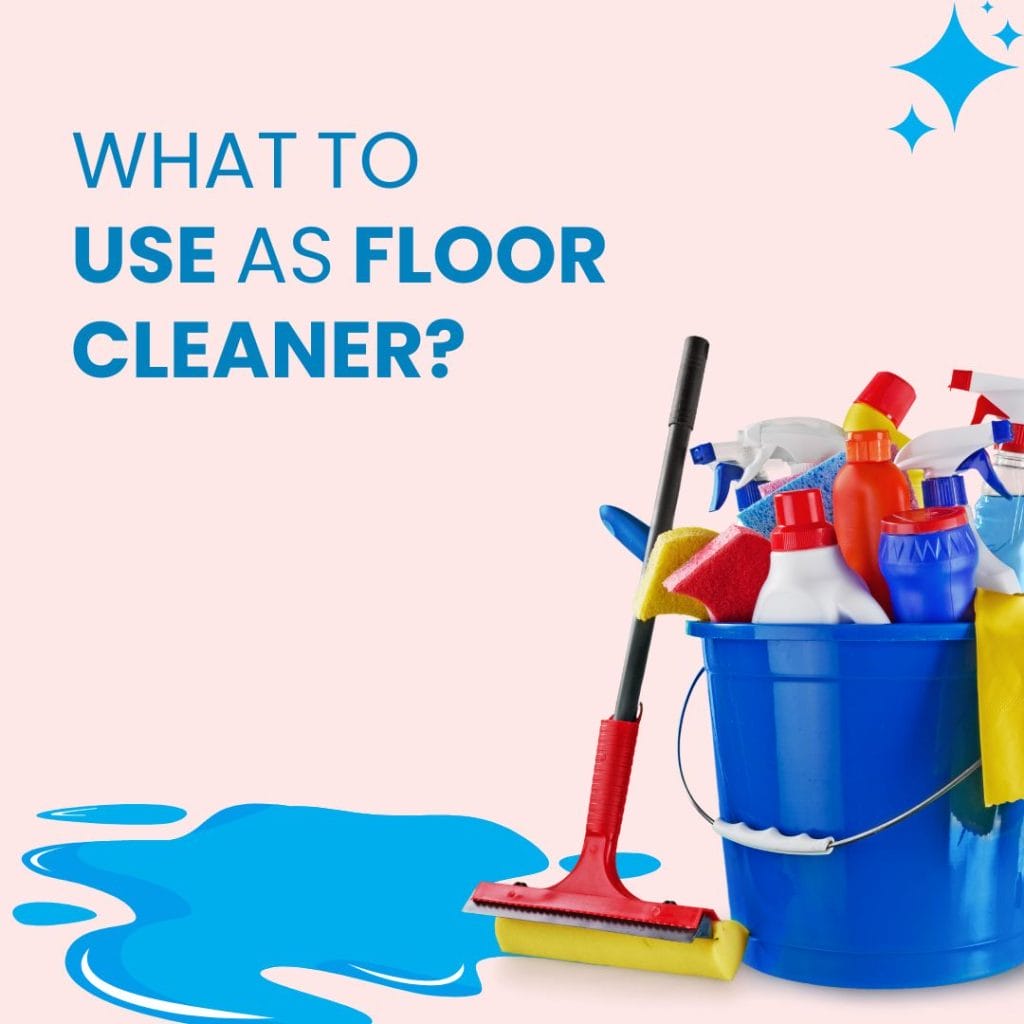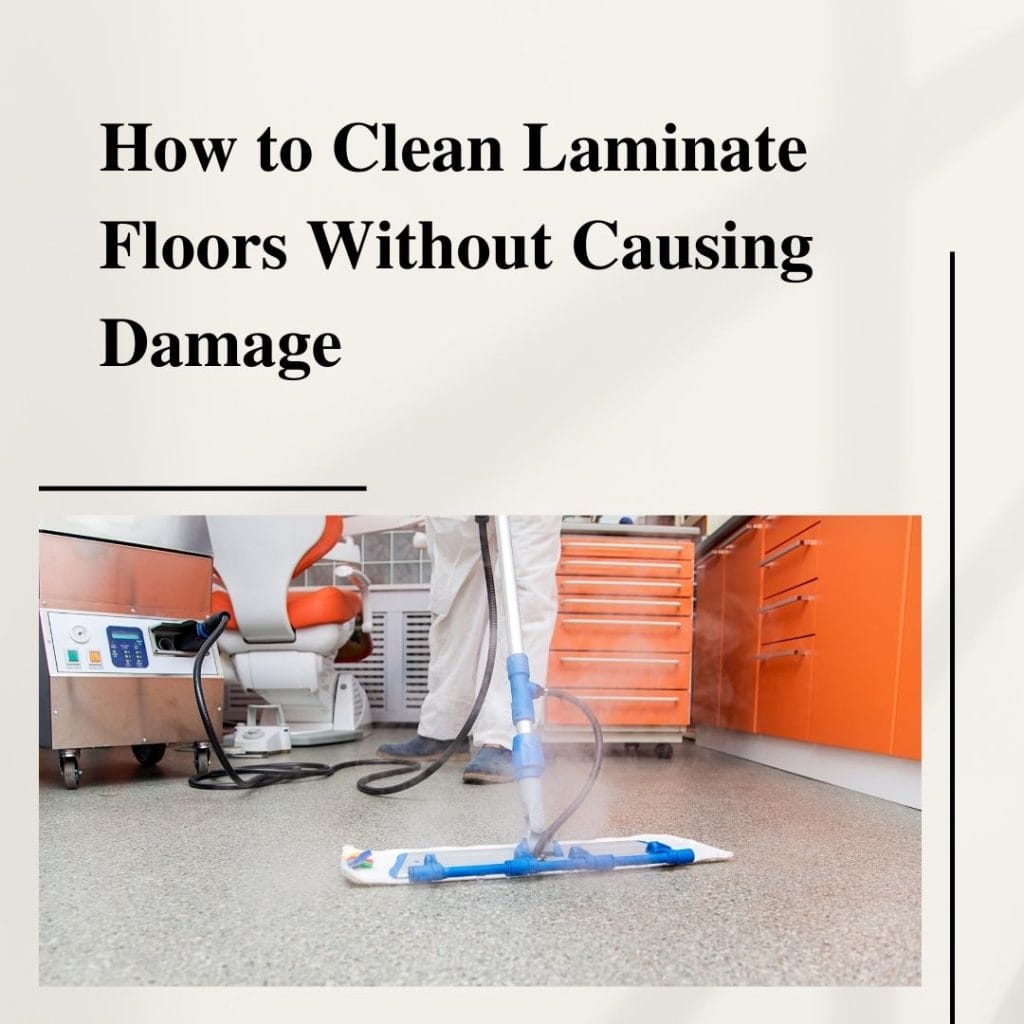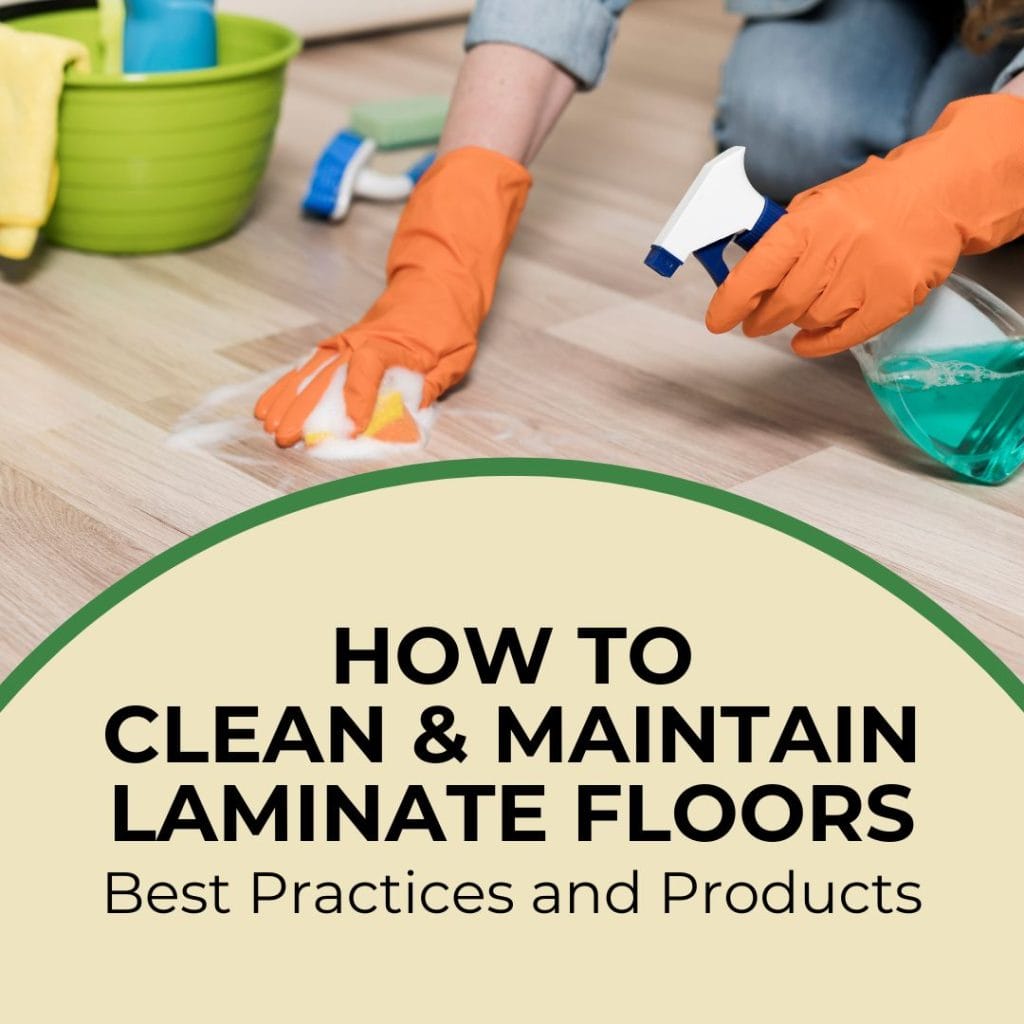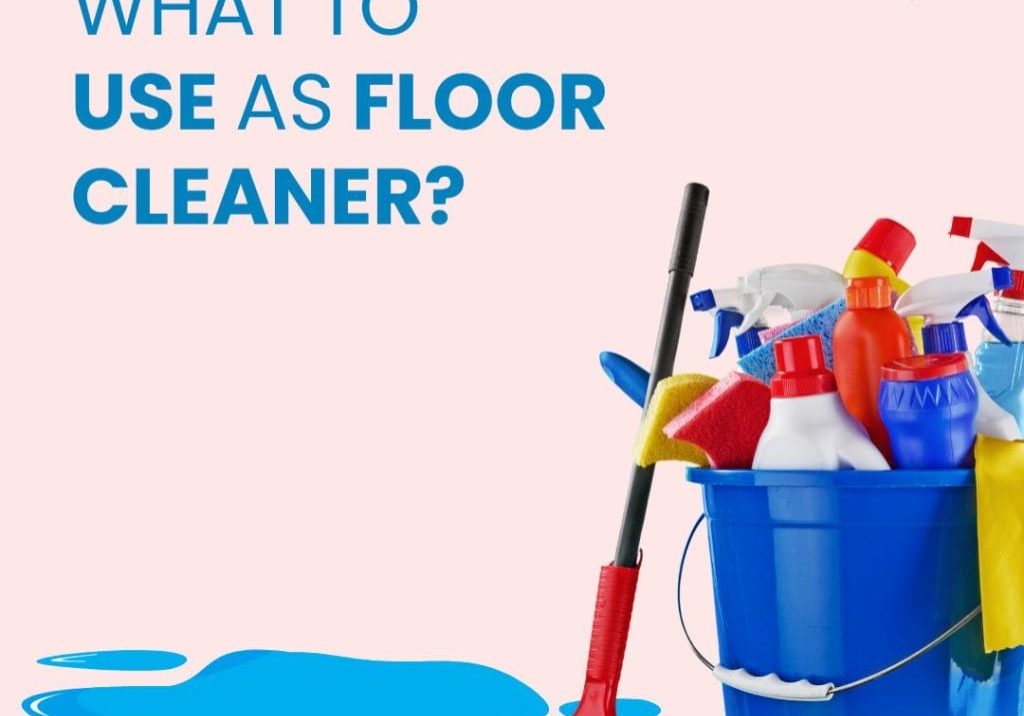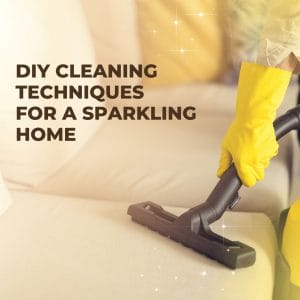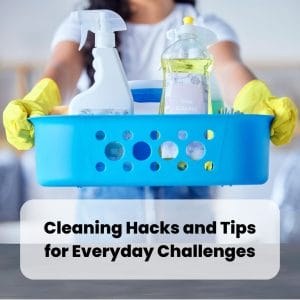When it comes to cleaning your floors, there are a variety of options available on the market. However, many people are looking for more natural and environmentally friendly solutions for their homes. Luckily, there are several household items that can be used as effective floor cleaners. Lets start with the basics first.
Floor cleaning is an essential task in maintaining a clean and hygienic living space. Dirty floors not only look unsightly, but they can also harbor harmful bacteria and germs that can cause illness. As such, it’s important to regularly clean our floors to keep them looking good and to maintain a healthy environment for ourselves and our families.
With the wide variety of cleaning products available in the market, it can be overwhelming to choose the right floor cleaner for your specific needs. While there are many options to choose from, not all floor cleaners are created equal. Some may contain harsh chemicals that can be harmful to both humans and the environment, while others may not effectively clean certain types of floors.
In this document, we’ll explore some common and natural alternatives that you can use as floor cleaners for a safer, more eco-friendly approach to keeping your floors clean.
Importance of Floor Cleaning
Cleaning our floors can help prevent the buildup of dirt, grime, and germs that can accumulate over time. This is especially important for high-traffic areas in our homes, such as the kitchen and bathroom, where spills and messes are more likely to occur. Regular floor cleaning also helps to maintain the appearance of our floors and prolong their lifespan.
Moreover, keeping our floors clean can also improve indoor air quality by reducing the amount of dust and allergens that can accumulate on dirty floors. This is especially beneficial for individuals with allergies or respiratory issues.
Factors to Consider When Choosing a Floor Cleaner
When it comes to choosing the right floor cleaner, there are a few important factors to consider:
- Type of Floor: Different types of floors require different cleaning methods and products. For example, hardwood floors may need special care compared to tile or vinyl floors.
- Ingredients: It’s important to check the ingredients in your floor cleaner and avoid harsh chemicals that can be harmful to your health and the environment.
- Effectiveness: Not all floor cleaners are created equal. Some may be better at removing certain types of stains or dirt than others.
- Cost: Natural alternatives can be cost-effective, but some may come with a higher price tag compared to traditional chemical-based cleaners.
Common Alternatives for Floor Cleaning
In this section, we will delve deeper into several common homemade floor cleaners for cleaning that are not only effective, but also friendly to the environment. These alternatives make use of everyday household items, making them easy to implement and wallet-friendly. Let’s explore these eco-friendly solutions to keep your floors spotlessly clean.
Vinegar and Water Solution
One of the most commonly used natural cleaners for floors is a simple mixture of vinegar and water. This solution is effective in removing dirt, grime, and stains from a variety of flooring types.
To use this alternative, simply mix equal parts of white vinegar and water in a spray bottle. Spray the solution onto the floor and mop as usual. For tougher stains, you can let the solution sit for a few minutes before mopping.
Baking Soda and Water Solution
Baking soda is another versatile natural cleaner that can be used on floors. Its abrasive properties make it effective in scrubbing away tough stains and removing odors from carpets.
To use this alternative, mix 1/4 cup of baking soda with a gallon of warm water. You can also add a few drops of your favorite essential oils for a pleasant scent. Use the solution to mop or spot clean your floors.
Lemon Juice Solution
Lemon juice is a great natural alternative for cleaning and disinfecting hardwood floors. Its acidic properties help to break down dirt and grime without damaging the floor’s finish.
To use this alternative, mix 1/2 cup of lemon juice with a gallon of warm water. Use the solution to mop your floors and give them a fresh, citrusy scent.
D. Castile Soap Solution
Castile soap is a plant-based soap that is gentle yet effective in cleaning floors. It’s also free of harsh chemicals, making it a safer option for households with children and pets.
To use this alternative, mix 1/4 cup of liquid castile soap with a gallon of warm water. You can also add a few drops of your favorite essential oils for a pleasant scent. Use the solution to mop your floors as usual.
Different Types of Floors and Their Cleaning Needs
As mentioned earlier, different types of floors require different cleaning methods and products. Here are some general guidelines for cleaning common types of flooring:
Hardwood Floors
- Avoid using excessive water or harsh chemicals on hardwood floors, as they can cause damage to the finish.
- Use a soft microfiber mop and a gentle cleaning solution for regular maintenance.
- For tougher stains, mix equal parts vinegar and water in a spray bottle and spot clean the affected area.
Characteristics of Hardwood Floors
- Durable and long-lasting if properly maintained.
- Can scratch or dent easily, so it’s important to use gentle cleaning methods.
- Sensitive to excessive moisture and high temperatures
Cleaning Needs
- Regular sweeping or vacuuming to remove dirt and debris.
- Occasional deep cleaning with a gentle cleaner.
Tile Floors
- Sweep or vacuum tile floors regularly to remove dirt and debris.
- For light cleaning, use a mixture of warm water and mild dish soap.
- For tougher stains, use a vinegar and water solution or a commercial tile cleaner.
Characteristics of Tile Floors
- Durable and resistant to stains and moisture.
- Can be slippery when wet, so make sure to dry the floor thoroughly after mopping.
Cleaning Needs
- Regular sweeping or vacuuming.
- Occasional deep cleaning with a mild cleaner.
Carpet Floors
- Vacuum carpet floors regularly to remove dirt and dust.
- Spot clean spills immediately with a mixture of equal parts white vinegar and water.
- Use a steam cleaner or hire a professional carpet cleaner for deep cleaning every 6-12 months.
Characteristics of Carpet Floors
- Soft and comfortable, but can harbor allergens and bacteria if not cleaned regularly.
- Can be difficult to remove tough stains from.
Cleaning Needs
- Regular vacuuming and spot cleaning.
- Deep cleaning every 6-12 months.
Laminate Floors
- Use a microfiber mop and a gentle cleaning solution for regular maintenance.
- Avoid using excessive water as it can cause damage to the laminate flooring.
- For tougher stains, use a vinegar and water solution or a commercial laminate floor cleaner.
Characteristics of Laminate Floors
- Easy to maintain and resistant to scratches and stains.
- Can be slippery when wet, so make sure to dry the floor thoroughly after mopping.
Cleaning Needs
- Regular sweeping or vacuuming.
- Occasional deep cleaning with a mild cleaner.
Natural Floor Cleaners and How to Use Them
Now that we’ve examined common alternatives for floor cleaning and the specific needs of different types of flooring, let’s delve into the practical application of these natural cleaners. This section will guide you on how to effectively use these eco-friendly solutions for your floor cleaning needs.
Vinegar and Water Solution
- Mix equal parts white vinegar and water in a spray bottle.
- Spray onto the floor and mop as usual.
- For tougher stains, let the solution sit for a few minutes before mopping.
Benefits
- Effective in removing dirt, grime, and stains.
- Inexpensive and readily available.
- Safe for most types of flooring.
How to Use
To use the vinegar and water solution, first, spray the mixture onto the floor surface. Mop the floor as you would typically do, ensuring that the solution is spread evenly. For stubborn stains, let the mixture sit on the spot for a few minutes. Finally, mop the area again, removing the solution and any loosened dirt.
Baking Soda and Water Solution
- Mix 1/4 cup of baking soda with a gallon of warm water.
- Use to mop or spot clean floors.
- For tougher stains, let the solution sit for a few minutes before scrubbing.
Benefits
- Effective in removing tough stains and odors.
- Environmentally friendly and non-toxic.
How to Use
To use the baking soda and water solution, mix the two ingredients in a bucket or spray bottle. Use the solution to mop or spot clean your floors, focusing on areas with tough stains. For extra stubborn stains, let the mixture sit for a few minutes before scrubbing with a sponge or brush.
Lemon Juice Solution
- Mix 1/2 cup of lemon juice with a gallon of warm water.
- Use to mop floors for a fresh, citrusy scent.
Benefits
- Effective in cleaning and disinfecting hardwood floors.
- Natural and non-toxic alternative to harsh chemicals.
How to Use
To use the lemon juice solution, mix the ingredients in a bucket or spray bottle. Use the solution to mop your floors, focusing on high traffic areas and spots with stubborn dirt or grime. The lemon juice will break down the dirt without damaging your hardwood floors. Plus, the fresh scent will leave your home smelling clean and inviting.
D. Castile Soap Solution
- Mix 1/4 cup of liquid castile soap with a gallon of warm water.
- Use to mop floors and add a few drops of essential oils for a pleasant scent.
Benefits
- Gentle yet effective in cleaning floors.
- Free of harsh chemicals, making it safe for households with children and pets.
How to Use
To use the castile soap solution, mix the ingredients in a bucket or spray bottle. Mop your floors as usual with the solution, focusing on tough stains or high traffic areas. For an added bonus, mix in a few drops of your favorite essential oils to leave a pleasant scent behind.
Essential Oils as Floor Cleaners
- Mix 10-15 drops of essential oils with a gallon of warm water.
- Use to mop floors for a natural and fragrant clean.
Benefits
-
- Natural, non-toxic way to clean and deodorize your floors.
- Wide variety of scents available to suit personal preferences.
How to Use
To use essential oils as floor cleaners, mix 10-15 drops of your preferred oil with a gallon of warm water. Mop your floors as usual with the solution, focusing on areas that need extra attention. Not only will your floors be clean and germ-free, but they will also smell amazing. Popular essential oils for cleaning include lemon, tea tree, peppermint, and lavender.
Benefits of Using Natural Floor Cleaners
- Safe and non-toxic for households with children and pets.
- Environmentally friendly, reducing the use of harsh chemicals in your home.
- Cost-effective, using common household items such as vinegar and baking soda.
How to Use Natural Floor Cleaners Effectively
To use natural and a homemade floor cleaner effectively, always make sure to test them on a small, hidden area first to ensure they won’t discolor or damage your floors. Dilute the solutions appropriately and apply them evenly across the surface using a mop or cloth. For stubborn stains, allow the cleaner to sit for a few minutes before scrubbing gently. Finally, always rinse with clean water and dry your floors to prevent any residue or water damage.
Commercial Floor Cleaners : What to Look For
When choosing a commercial floor cleaner, consider its formulation and whether it’s suitable for your specific floor type to prevent damage. Look for non-toxic and biodegradable options for a more environmentally friendly choice. Additionally, consider the cleaner’s efficacy in removing tough stains and odors. Lastly, user reviews can be an invaluable resource in determining the overall performance and reliability of the product.
Types of Commercial Floor Cleaners
In this section, we will delve into the various types of commercial floor cleaners available in the market. We will discuss their key characteristics and how they cater to different types of flooring materials.
- Multi-Surface Floor Cleaners
These are versatile cleaners that are suitable for use on a variety of flooring materials such as tile, hardwood, laminate, and vinyl. They are designed to effectively clean and remove stains without damaging the surface of the floors. When choosing a multi-surface floor cleaner, ensure it is non-toxic and biodegradable, especially if you have children or pets at home. Always follow the manufacturer’s instructions regarding dilution and application to ensure optimal results.
- Specialized Floor Cleaners
These are floor cleaners that have been specifically formulated for certain types of flooring materials such as hardwood, laminate, stone, or tile. Specialized cleaners are tailored to the unique characteristics and requirements of these specific surfaces. For instance, a hardwood floor cleaner will be designed to clean effectively without stripping the wood of its natural oils, while a stone floor cleaner will be formulated to clean without leaving residues that could build up and dull the stone’s surface. When choosing a specialized cleaner, ensure it is suitable for your floor type and follow the manufacturer’s instructions for use to achieve the best results.
Dangers and Precautions
While commercial floor cleaners can offer convenience and powerful cleaning capabilities, it’s crucial to be aware of potential risks and necessary safety precautions.
Always follow the Instructions: Always adhere to the manufacturer’s instructions when using chemical-based floor cleaners. Some of these products may contain harsh substances which, if used improperly, can lead to surface damage or health issues. Protective gear such as gloves and safety glasses should be worn to shield your skin and eyes from potential irritants. Ensure that the area is well-ventilated during and after the application of these cleaners to avoid inhaling harmful fumes.
Storage and Accessibility: For safety, all cleaning products, including floor cleaners, should be stored out of reach of children and pets. Even those labeled as ‘non-toxic’ can cause irritation if ingested or come into contact with the skin or eyes. Consider high shelves or locked cabinets for storage and make sure to securely seal all products after use. Despite their harmless appearance, even natural floor cleaners can pose risks. Vinegar, for instance, can cause eye and skin irritation and can be harmful if swallowed in large quantities. Always err on the side of caution when it comes to storing cleaning products.
Benefits
In this section, we’ll explore the benefits of commercial floor cleaners, highlighting their effectiveness, convenience, and the wide range of options available.
Convenient And Quick To Use:
Commercial floor cleaners are designed for convenience and quick use. Unlike homemade alternatives, they require no preparation time. Simply apply the product according to the manufacturer’s instructions and achieve a clean, fresh-scented floor in no time. Furthermore, they come in various forms including sprays, concentrates, and ready-to-use formulas, each designed to cater to your specific cleaning needs and preferences. Whether you’re tackling a large, high-traffic area or a small, localized stain, there’s a commercial floor cleaner out there that can get the job done efficiently and effectively.
Formulated with Specific Ingredients For Flooring:
Commercial floor cleaners are often designed with a particular floor type in mind. For instance, cleaners for hardwood floors may contain natural oils to replenish and maintain the wood’s luster, while those for tile and stone might have gentle, yet effective, ingredients to remove grime without causing surface erosion. This specificity not only ensures optimal cleaning results but also prolongs the longevity of your floors. Always check the product label to ensure the cleaner is suitable for your flooring material.
Picking the Right Commercial Cleaner for Your Floor
To choose the right commercial floor cleaner for your home, consider the type of flooring you have, any sensitivities or allergies in your household, and your personal preferences. Take into account the ingredients and formulation of the product to ensure it is safe for both you and your floors. User reviews can also be a valuable resource in determining the reliability and effectiveness of a particular cleaner. With a little research and consideration, you can find the perfect commercial floor cleaner to keep your floors looking clean and well-maintained. Whether it’s a multi-surface cleaner or a specialized formula, make sure to always follow instructions for optimal results and safe usage.
Understanding Ingredients and Their Impact
It’s essential to be mindful of the ingredients in commercial floor cleaners, not just for the safety of your family and floors but also for the environment. Some common chemicals found in these products can have harmful effects on aquatic life and groundwater if not disposed of properly. Look for eco-friendly options that utilize natural and biodegradable ingredients, or consider making your own floor cleaner using household items such as vinegar, baking soda, and essential oils. By understanding the impact of certain ingredients, we can make informed decisions that benefit both our homes and the planet. So whether you choose a commercial or DIY floor cleaner, always prioritize safety and sustainability. Keep your floors clean without compromising on health or environmental concerns.
Safety Precautions When Using Floor Cleaners
- Always follow the manufacturer’s instructions and safety precautions when using
- Wear protective gear, such as gloves and safety glasses, to minimize potential exposure to harmful chemicals and fumes.
- Store all cleaning products out of reach of children and pets in a secure location.
- Consider eco-friendly options or make your own cleaner with natural ingredients to reduce harm to the environment.
- When disposing of cleaners, follow proper guidelines and regulations to avoid polluting water sources and harming aquatic life.
- If any adverse reactions occur while using a floor cleaner, immediately stop use and seek medical attention if necessary.
By taking these safety precautions, we can ensure that our cleaning routine not only keeps our floors looking great but also minimizes potential risks to ourselves and the environment. Remember, a clean home is a happy home when we prioritize health and safety in our cleaning practices. Keep these tips in mind for an effective and safe cleaning experience with commercial floor cleaners. So go ahead and enjoy the convenience and power of these products, but always do so responsibly.
Handling and Storage of Cleaners
- Always read the product label for specific instructions on handling and storage.
- Keep all cleaning products out of reach of children and pets in a secure location.
- Store in a cool, dry place away from direct sunlight.
- Do not mix different cleaners together as it can create harmful fumes.
- Securely seal all containers after use to avoid accidental spills.
- If a cleaner has expired, dispose of it according to proper guidelines and regulations.
By following these guidelines, we can ensure the safe handling and storage of commercial floor cleaners in our homes. It is important to keep these products out of reach of children and pets to prevent any accidents or ingestions. Proper storage also helps maintain the effectiveness of the product for future use.
Protecting Yourself When Cleaning
- Always wear protective gear, such as gloves and safety glasses, when using commercial floor cleaners.
- Open windows or turn on ventilation to minimize exposure to fumes.
- If you have any respiratory sensitivities or allergies, consider wearing a mask while cleaning.
- Wash your hands thoroughly after use.
By taking these precautions, we can protect ourselves from potential harm while cleaning with commercial floor cleaners. It is important to prioritize our safety and well-being, especially when handling strong chemicals. So make sure to take these measures for a safe and effective cleaning experience.
Guidelines for Use Around Children and Pets
- Keep children and pets out of the area being cleaned until the floor is completely dry.
- Consider using natural or eco-friendly cleaners if you have young children or pets that may come into contact with the floor.
- If you are unsure about the safety of a particular cleaner, do a patch test in a small, inconspicuous area before using it on larger surfaces.
- Always supervise children and pets when using commercial floor cleaners to prevent any accidents.
By following these guidelines, we can ensure the safety of our little ones and furry friends while maintaining clean floors. It is important to be cautious when using chemicals around children and pets, as they may accidentally ingest or come into contact with them. By taking these steps, we can enjoy
Conclusion
Keeping our homes clean is a task of paramount importance, but it should never come at the cost of our safety, health, or the environment. Commercial floor cleaners offer a convenient and effective solution, but understanding their ingredients, impact, and the necessary safety precautions is crucial. It’s essential to store and handle these cleaners safely, protect ourselves during their use, and be extra cautious around children and pets.
Natural or eco-friendly cleaners can be a wonderful alternative, balancing cleaning effectiveness with environmental friendliness. Always remember: a clean home is truly a happy home when we prioritize health, safety, and environmental responsibility. Here’s to enjoying sparkling clean floors with peace of mind!
